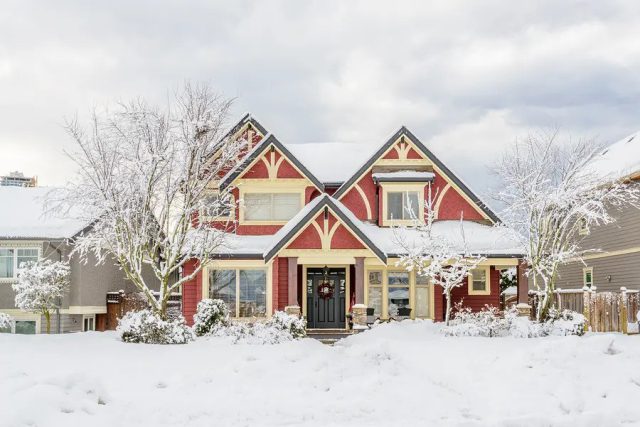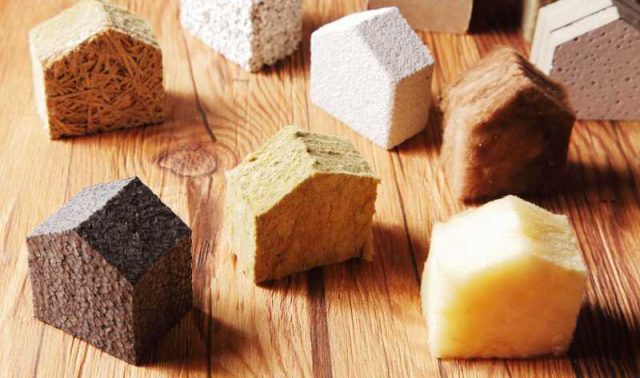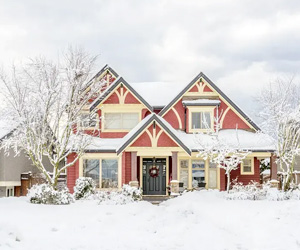As Michigan-based insulation experts, we’ve seen firsthand how our unique climate can wreak havoc on local homes. If you’re a Michigan homeowner, this guide will reveal how the right insulation can protect your home, slash energy bills, and keep you cozy all year round. Let’s dive into the challenges posed by our Great Lakes region and how to conquer them.
Michigan’s Microclimate: More Than Just Snow

The Great Lakes do more than provide stunning views–they significantly impact our weather. While these vast bodies of water moderate air temperatures, they also contribute to high humidity levels, especially in summer. That is, in part, thanks to the significant amount of water vapor the Great Lakes release into the air through evaporation, adding moisture directly to the atmosphere. But it’s the infamous lake effect snow that creates unique challenges for insulation.
Lake Michigan and the other Great Lakes can cause rapid temperature swings, leading to condensation and moisture buildup in your home. This means standard insulation recommendations for other parts of the United States often fall short for Michigan homes. We need to think bigger and smarter.
Michigan Humidity
Summer in Michigan isn’t just about beaches and barbecues. High humidity can lead to a host of problems:
- Mold growth in attics, walls, and crawl spaces
- Wood rot and structural damage
- Increased cooling costs as your AC works overtime
- Uncomfortable indoor air quality
To combat this, proper ventilation and vapor barriers are crucial companions to insulation in managing moisture. Without them, even the best insulation can become compromised.
Lake Effect Snow: When Insulation Becomes Your Shield
Come fall and winter, lake effect snow dumps massive amounts of snowfall on parts of Michigan. This winter weather phenomenon occurs when cold air moves across the warm waters of the Great Lakes, picking up moisture and depositing it as snow on the leeward shores. The results can be dramatic:
- Ice dams on roofs, causing leaks and damage
- Increased heat loss through poorly insulated attics
- Frozen pipes and potential plumbing disasters
Sufficient attic insulation and proper roof ventilation are your best defenses against these winter woes. They help maintain consistent surface temperatures on your roof, preventing the freeze-thaw cycle that leads to ice dams.
Choosing the Right Insulation for Michigan’s Unique Challenges
 Installing the right R-values of insulation is crucial in Michigan due to our extreme cold and temperature swings. Here are a few insulating options we recommend:
Installing the right R-values of insulation is crucial in Michigan due to our extreme cold and temperature swings. Here are a few insulating options we recommend:
Closed Cell Spray Foam: Spray foam insulation offers excellent moisture resistance, high R-value, and insulates and air seals in one step. It is applied as a liquid and expands to fill a space and fill air leaks. Spray foam comes in both open cell and closed cell form.
Cellulose: Dense-packed cellulose insulation is made from recycled paper products and is great for filling gaps and closed spaces and helping with air sealing.
Fiberglass Batts: Fiberglass insulation is manufactured from recycled glass and is the most affordable and widely used option, but batt insulation can be less effective against moisture without a vapor barrier.
Now that you know about the various types, you can focus on properly insulating these key areas of your home:
Attic Insulation: Attic insulation is crucial for minimizing ice dams and reducing heat loss.
Basement and Crawl Space Insulation: Insulating and air sealing your basement and crawl space will protect your home against moisture and cold floors.
Wall Insulation: Wall insulation creates a thermal barrier for year-round comfort and aids in sound proofing too.
Beyond Insulation: Additional Tips for Michigan Homes
The National Weather Service often warns of extreme cold and large-scale snow accumulation in our region during the winter season. By taking these steps, along with insulation, you’ll be well-prepared for whatever Mother Nature throws your way:
Proper Ventilation
Ensure your home has adequate attic and crawl space ventilation to control moisture.
Air Sealing
Seal all the gaps and cracks in your home to prevent drafts and reduce energy loss.
Regular Inspections
Frequently check for signs of moisture damage or inadequate insulation.
Be Prepared for Every Season with Whitson Insulation Company
 Ultimately, you don’t have to live here long to realize our climate poses unique challenges for residents and fellow homeowners. That’s why, with the warming winter effects of the lakes’ waters to the bone-chilling cold air of January, proper insulation makes a significant difference in your comfort and energy savings. Snow-covered roofs and icy sidewalks may be a fact of life here, but freezing indoors doesn’t have to be.
Ultimately, you don’t have to live here long to realize our climate poses unique challenges for residents and fellow homeowners. That’s why, with the warming winter effects of the lakes’ waters to the bone-chilling cold air of January, proper insulation makes a significant difference in your comfort and energy savings. Snow-covered roofs and icy sidewalks may be a fact of life here, but freezing indoors doesn’t have to be.
Make sure your home is ready for every season. Start by scheduling a professional home energy audit to assess your specific insulation needs and make informed decisions. Then call us at Whitson Insulation Company. We’ve been a trusted member of our Grand Rapids community since 1978 and have grown to be one of the largest insulation contractors in western Michigan thanks to our strong work ethic and top-quality products. We’re here to help you turn your Michigan home into a cozy haven, no matter what the snow depths outside may be. Contact us today to learn more about our insulating solutions.

